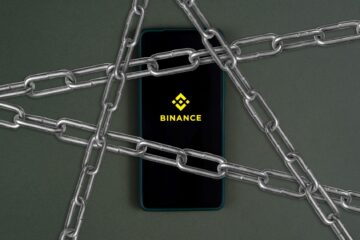ICOs for Dummies
Disclaimer (i wrote this post in summer 2017, and it’s surprising that it is still very much valid 
What is an ICO from the regulatory perspective?
What is a token from the regulatory perspective?
– Equity-based
– Debt-based
– Rewards-based
– Donations and charities
Is it true that Switzerland and Singapore have the best regulatory framework for ICOs which is why so many of them happen in these jurisdictions?
No, it’s not. Technically speaking, neither Switzerland nor Singapore have specific ICO regulations. They don’t even have specific detailed regulations on crypto-currencies. What all ICO participants are relying on is a general existing regulatory framework in the country, contractual and commercial laws, some public statements or guidelines issued by local regulators, and a basic understanding (a fair point!) that every activity which is not directly prohibited, is legit.
I did my research and talked to a few lawyers from both countries and can definitely confirm that:
a) There are no specific ICO laws in Singapore and Switzerland, all the Guidelines and interpretations are based on existing financial, securities, contractual, consumer protection and other regulations;
b) ICOs are not prohibited in these countries; and
c) Regulators are aware of the recent trends, but they are not ready to regulate the space as a unique subject matter just yet, they are in “observe and learn” mode.
It is true though, that some regulators are less dogmatic and more progressive than others, and it is probably true that MAS, FMA of Liechtenstein and FINMA are some of the most forward-thinking regulators in the world, especially when it comes to Fintech. But it does not mean that you can do whatever you want with your ICO in these countries and it’s going to be OK. There is no carte-blanche.
How is ICO different from IPO?
-
IPO is typically a registered event when a company is issuing shares that are going to be traded on a stock exchange. IPO usually signifies the last, most mature stage of the company’s development and corporate governance, simply because it would not be possible to complete all the required due diligence steps before the company is really ready. Shareholders are the owners of the company and there is a requirement to have and maintain a complete shareholder register.
-
ICO is often the entry point into the market, when the company as a legal entity may not even exist. Its maturity level often corresponds to the seed-stage investment aka “we just have an idea and maybe a prototype”. Token owners are usually not the owners of the company and it is very common that the tokens are issued anonymously to token holders, which means, nobody really knows who they are.
Does it mean, that ICO is just a tool for raising funds?
- Yes, it could be just another form of Kickstarter or Indiegogo, a form of raising money. However, there are ICOs where token holders are expected to play a dedicated role in the future of the company. It is crucial to think, what is the future role of the token for post-ICO, because this will largely determine how your ICO is regulated.
Tokens like shares = IPO:
- If token holders are given voting rights and are able to make decisions about future strategic development.
- If companies announce coins-buy-back programs or promise to declare and pay dividends.
- Tokens are issued by the same entity as a commercial entity operating the business and the total number and value of the tokens corresponds to the issued capital of the legal entity in question.
- “Proof-of-stake” privileges are linked to proportionate voting rights and closely linked to ownership in the underlying legal entity.
Tokens like debt = “debt IPO”:
- Token holders are promised to receive the funds back by a certain date. There is an element of a fair value of the debt and a premium (for example, interest rate). Any form of a guaranteed promised return linked to a certain date.
- A contract with token holders defines specific collateral which can be sold or transferred to the token holder in case of default.
Tokens like rewards = not regulated yet:
- The commercial value of the token is somewhat established before the ICO event and is clearly linked to the goods or services offered by the company.
- Tokens circulation and redemption rights will be within a (relatively) limited distribution network in exchange for goods and services consumed.
- There is an organic, natural role for the “proof-of-stake” privileges to be a part of future sales of the goods and services, for example, to have access to special offers or receive discounts.
- The value of the token is closely linked to its role in the future ecosystem and users’ community, as opposed to the financial results and profitability of the underlying legal entity.
- In all cases, it’s ok to expect that there will be a secondary market for the tokens. Tokens may change hands and increase in value. The nature of the token is mostly determined by its function within the ecosystem, the rights it represents and its usability.
Does it mean that tokens will soon become the new money?
- The key economic difference between tokens (or any crypto-currencies for that matter) and fiat money is that crypto currencies are very unstable and not widely acceptable. If there is a market panic, meltdown, massive manipulation or a big scam with crypto currencies, the governments will not intervene to maintain stability, will not provide liquidity to cryptocurrency exchanges, will not bail out anyone and will not care about protecting the value of the cryptocurrency.
Are ICOs legal? – Yes, they generally are. With some exceptions.
-
Breaking the law is never a good idea. And operating the business requiring a license or a special permission without such license or permission is illegal. Which means that whenever your ICO looks and feels like issuing shares or bonds to the general public, and you don’t have a permission, it’s illegal. Rewards-based ICOs are generally not regulated and should be safe.
-
Even for a rewards-based ICO, it’s not a good idea to break the law. For example, making false representations, misleading participants, stealing, lying, misusing collected data, ignoring contractual obligations, gathering funds for supporting criminal activity, or running away with other people’s money is illegal. The fact that you are doing an ICO does not mean that all existing laws in the country don’t apply to you anymore. It’s just common sense.
What about USA and US residents? Why so many ICOs block them?
-
Technically speaking, rewards-based ICOs are legal in the US and don’t require special permission and there is nothing specific in any law that requires you to exclude all US people from accessing your ICO.
-
Issuing securities in the US or to the US residents or using US banking system requires you to follow a special process called IPO. Similar to many other countries. So, in this regard, US is not special.
-
Sometimes, US authorities have a funny understanding about what their jurisdictional authority is. Look at OFAC and FATCA, for example. Essentially it means, that if they suddenly decide to harm you or ban you, they can. Like it or not.
-
Does it mean that if you are running a rewards-based crowdfunding and you are honestly planning to follow laws and regulations in countries where you operate, you must exclude US citizens or residents? – Not really. US citizens and residents can participate in legitimate crowdfunding activities abroad.
-
What you need to know, however, is that if something goes wrong, US residents have the right to complain about it to SEC or CFTC or CFPB, POTUS, and all of the above, can organize class actions and sue you for totally unreasonable amounts, if they feel harmed or misled or just cranky.
-
Which is why a lot of lawyers and consultants in the past recommended to exclude US participants from ICO. Just in case. If you are sure that your ICO is legit and that none of your US participants will ever complain, you are on the solid ground. But those are quite big assumptions.
Are blockchain forks legal?
- Yes, they are – because they are not prohibited. Both on the blockchain and in the kitchen. However, if a fork is used to deceive or harm someone or if using a fork would break previously made contractual promise, it would be potentially illegal. Both on the blockchain and in the kitchen. Which is why it’s very important to define clear teams and conditions for each ICO and explain to the users, what may happen in a case if, for example, pro-life and pro-choice movements within the shark economy would agree to disagree and part ways and what options could be available to contributors.

